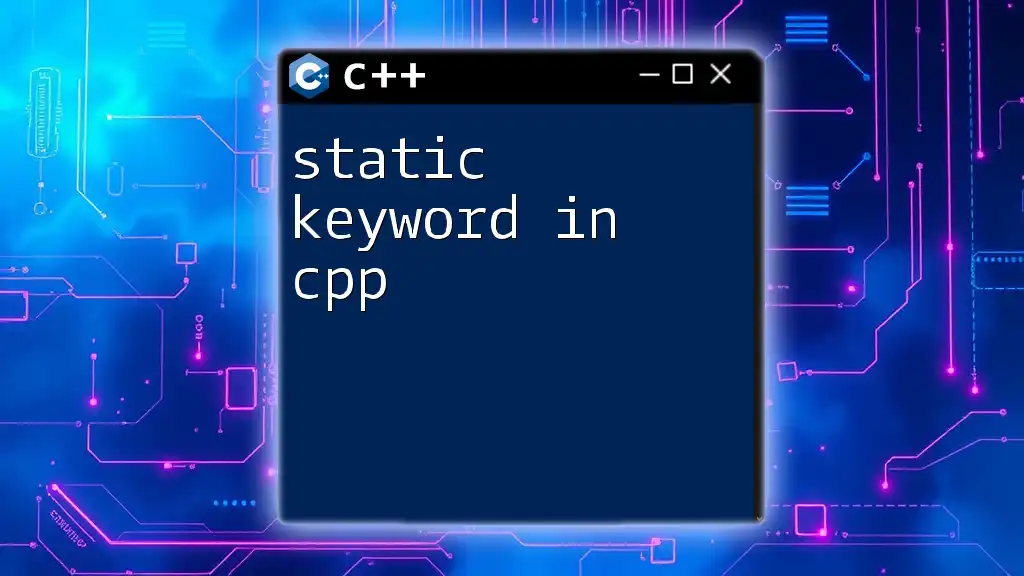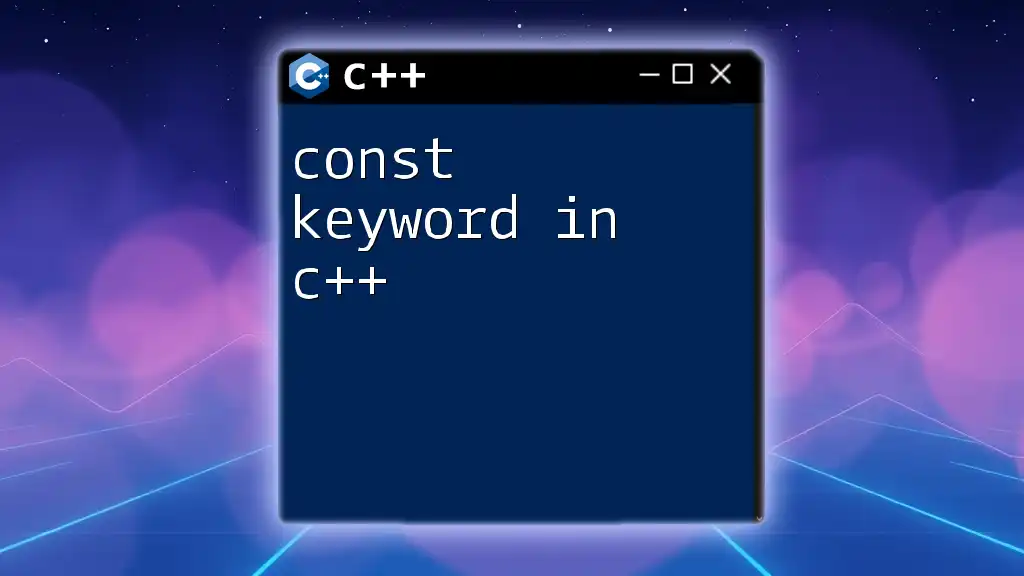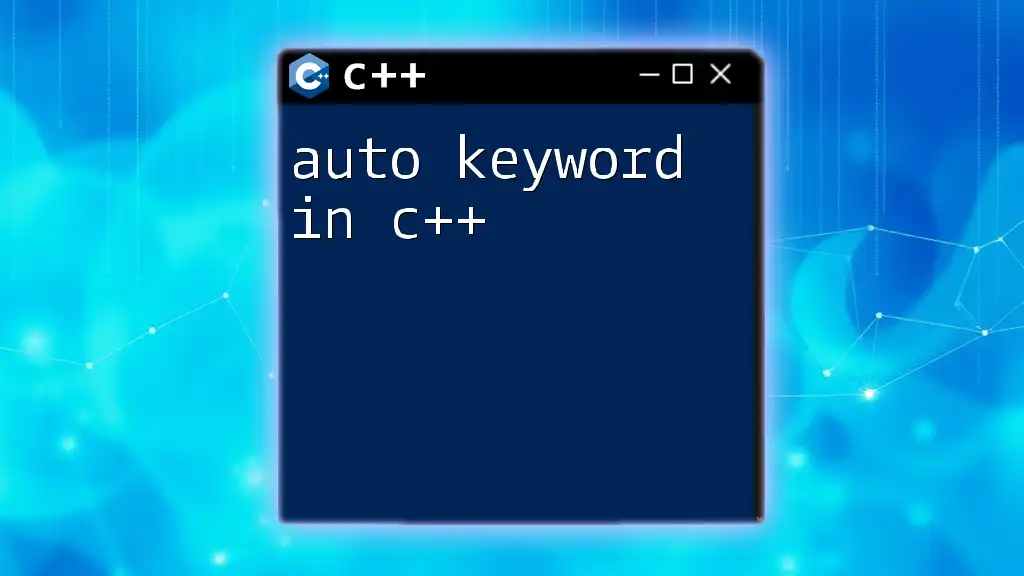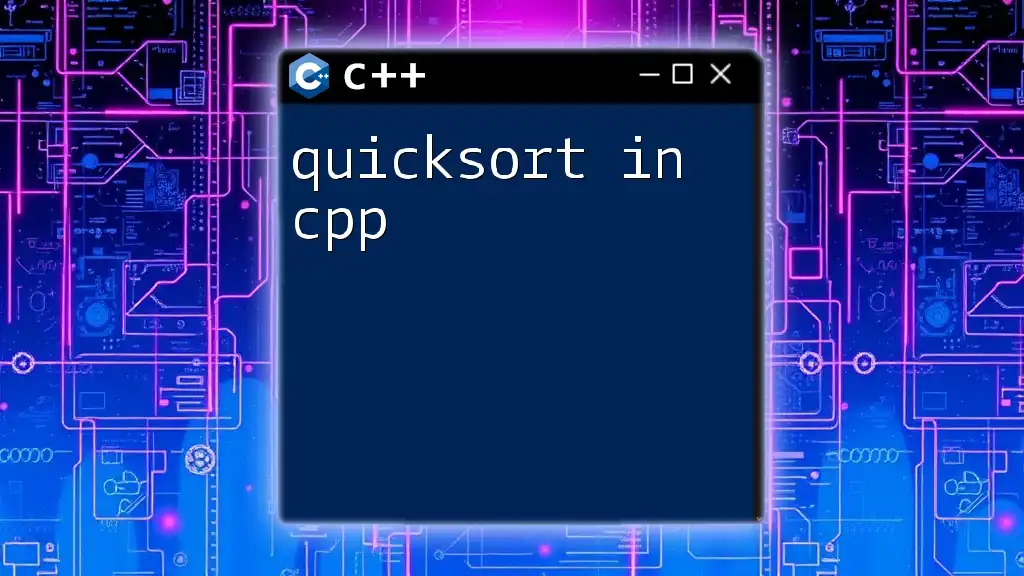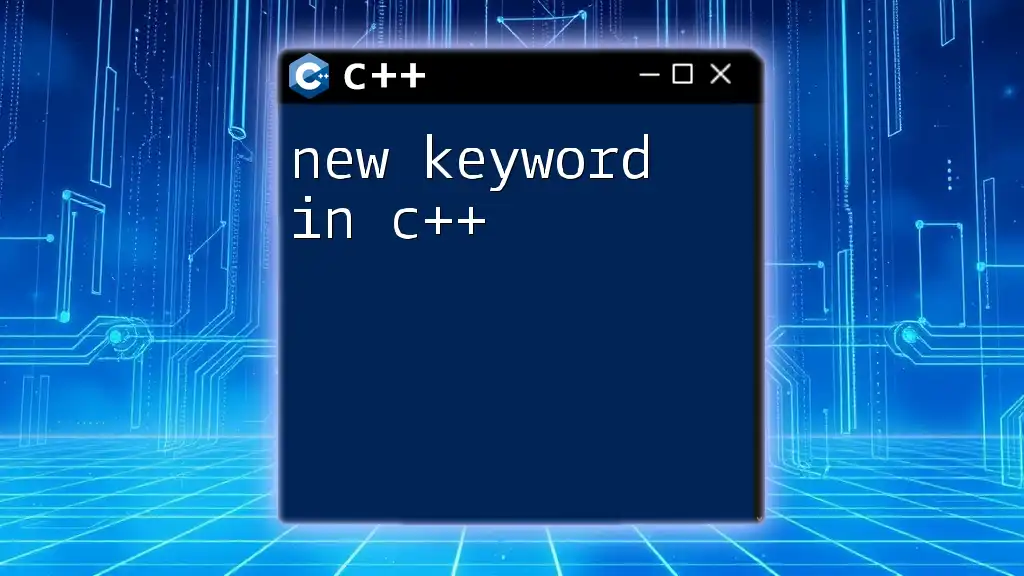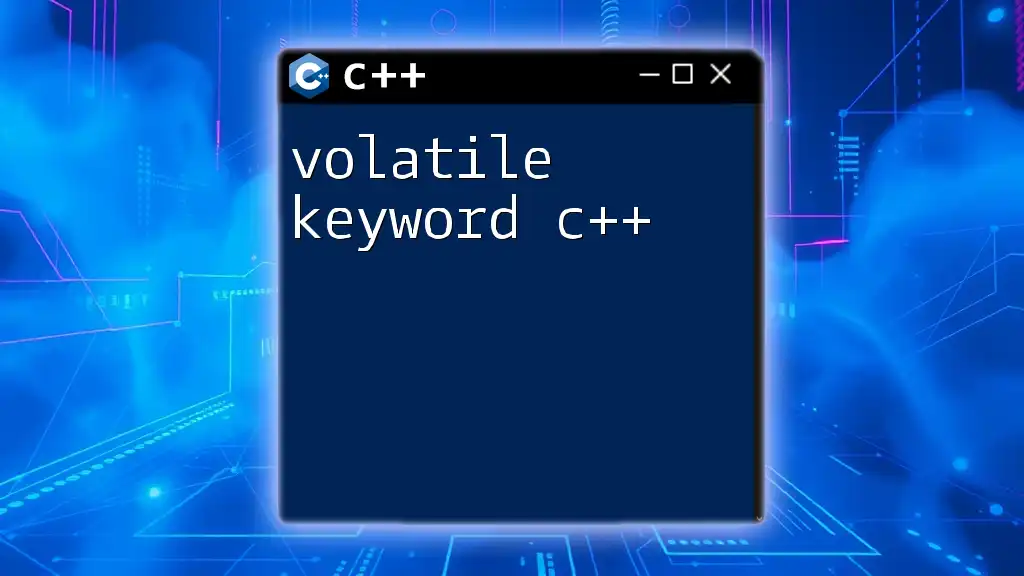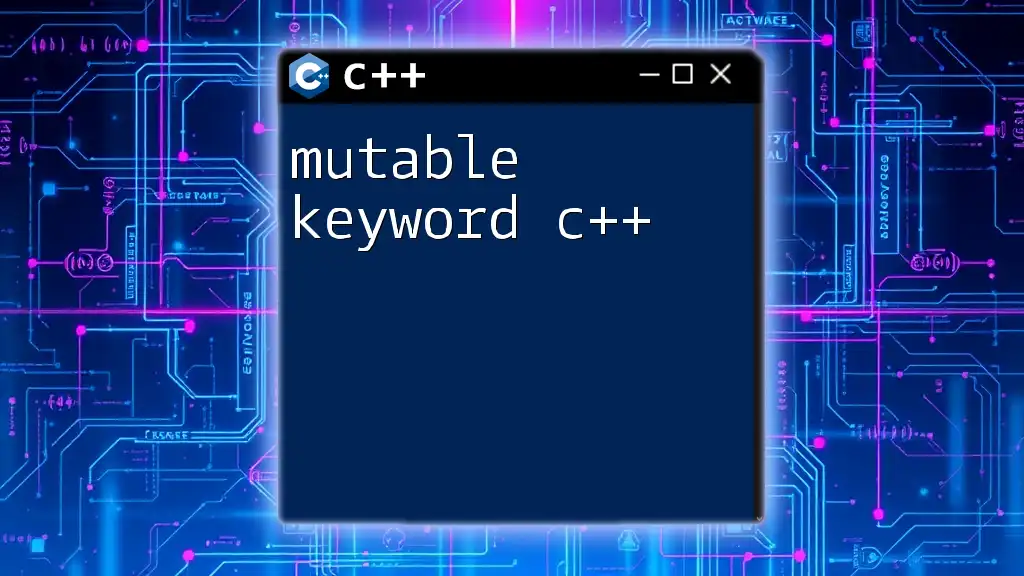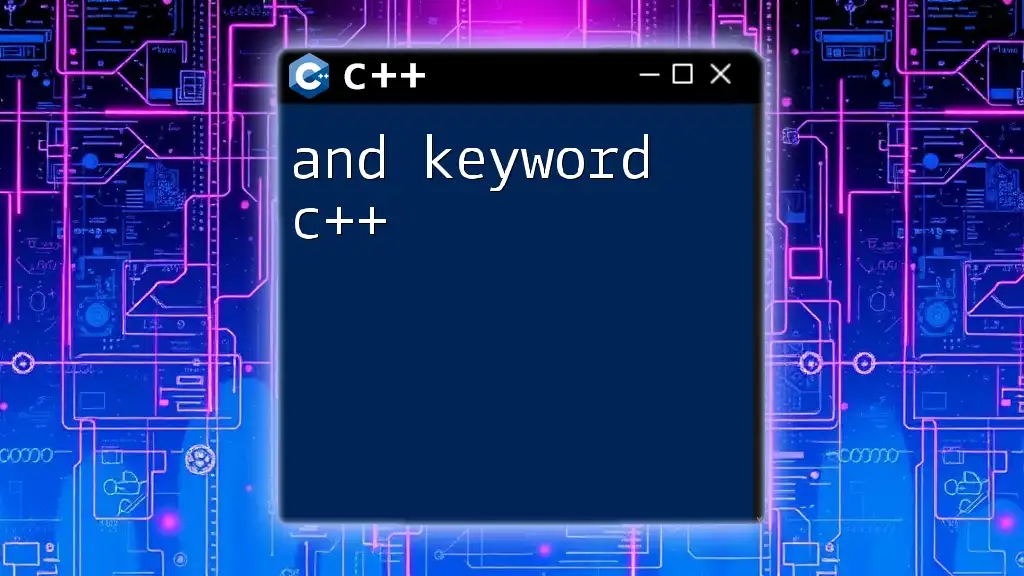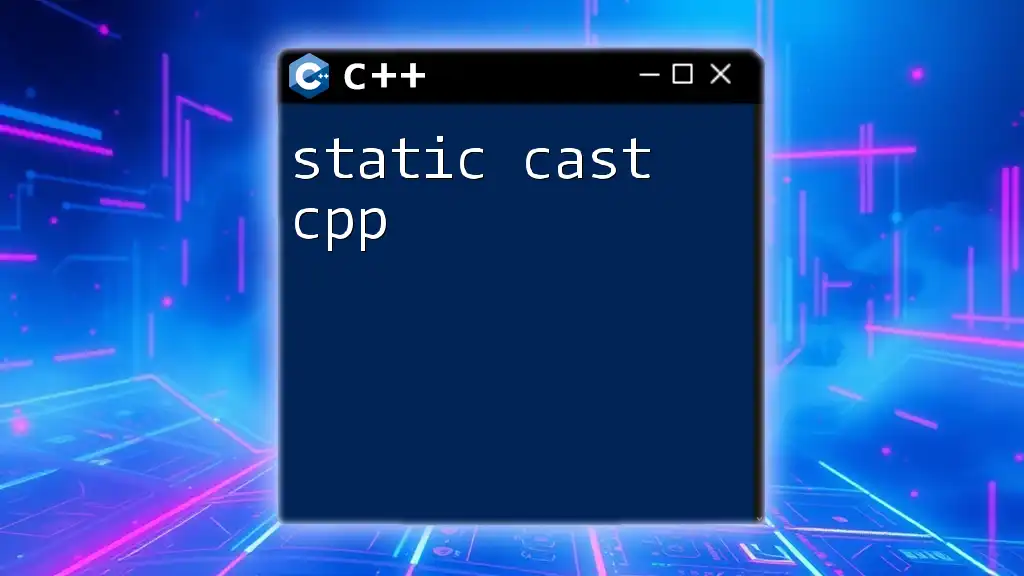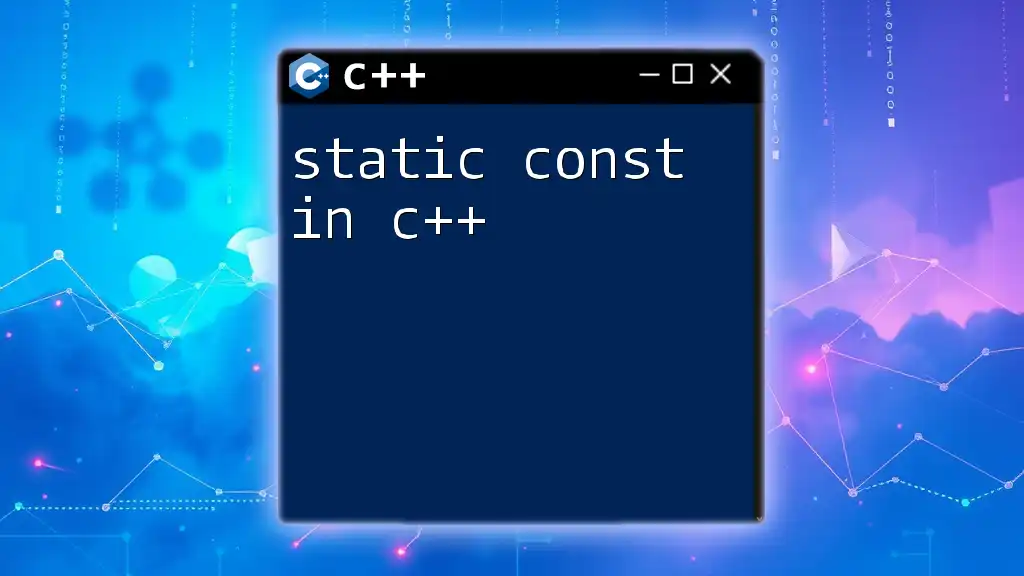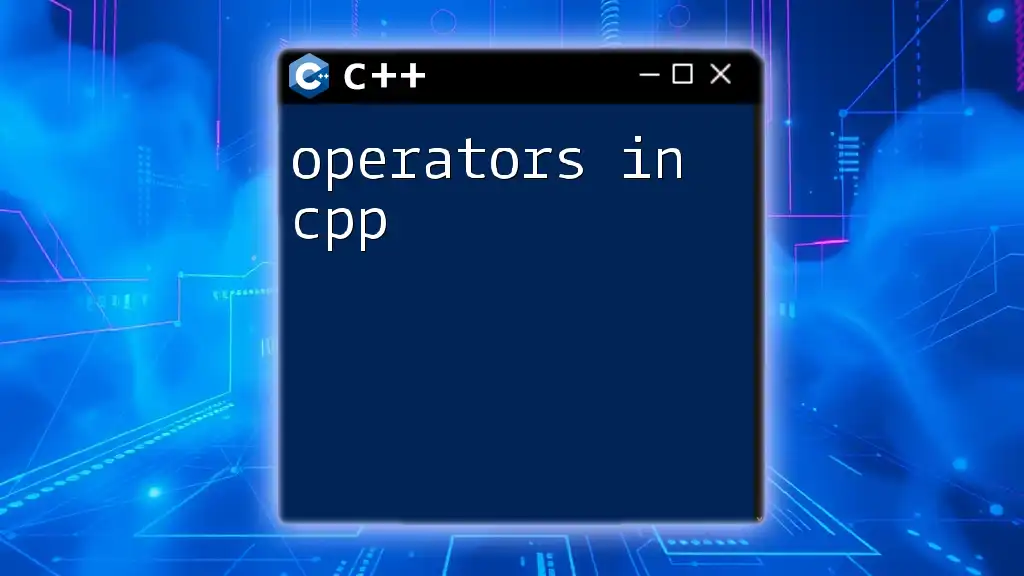The `static` keyword in C++ is used to maintain the state of a variable across multiple function calls or to limit the visibility of a variable to the file in which it is declared.
Here’s a quick example demonstrating the use of `static` within a function:
#include <iostream>
void countCalls() {
static int callCount = 0; // static variable to hold call count
callCount++;
std::cout << "Function called " << callCount << " times." << std::endl;
}
int main() {
countCalls(); // Output: Function called 1 times.
countCalls(); // Output: Function called 2 times.
countCalls(); // Output: Function called 3 times.
return 0;
}
Understanding the Static Keyword in C++
The static keyword in C++ is a powerful tool that serves various purposes, significantly influencing variable scope and storage. To harness its potential, it’s essential to understand its nuances and applications.
Overview of Static in C++
The static keyword primarily affects the storage duration and linkage of variables. When you declare a variable as static, it retains its value between function calls while being limited in scope. In essence, it lives until the program terminates, thereby granting it a unique position within the memory structure.
Static Variables
Static variables can be categorized into local and global static variables.
Local Static Variables
A static local variable is initialized only once, and its value persists even after the function exits. It’s useful for maintaining state information without exposing the variable outside its function.
Example:
void function() {
static int counter = 0; // Initialized only once
counter++; // Incremented on each call
std::cout << "Counter: " << counter << std::endl;
}
In this example, every time `function()` is called, `counter` retains its previous value, allowing you to track how many times the function has been invoked.
Global Static Variables
Unlike local static variables, global static variables are limited in scope to the file in which they are declared. They cannot be accessed from other files, providing a controlled access mechanism.
Example:
static int globalStaticVar = 0; // Can only be accessed in this file
void increment() {
globalStaticVar++;
}
In this case, `globalStaticVar` is accessible only within the same file, making it useful for internal states.
Static Member Variables
When it comes to static member variables, these belong to the class rather than to any individual object. As such, they share a single copy across all instances of the class.
This enhances memory efficiency since you do not need to allocate space for each instance. It's crucial to note that static member variables must be explicitly defined outside the class definition.
Example:
class MyClass {
public:
static int staticVar; // Declaration
void display() {
std::cout << "Static Variable: " << staticVar << std::endl;
}
};
// Definition
int MyClass::staticVar = 0; // Initialization
In this scenario, `staticVar` maintains a single state shared among all instances of `MyClass`. Hence, changing it through one instance affects all others.
Static Member Functions
Static member functions have similar characteristics to static member variables. They belong to the class rather than any instance and can be called without creating an object of the class. The primary purpose is to provide functionality that does not depend on member variables.
Example:
class MyClass {
public:
static void staticFunction() {
std::cout << "This is a static member function." << std::endl;
}
};
int main() {
MyClass::staticFunction(); // Call without creating an object
}
In this example, you can see that `staticFunction` can be executed directly through the class, emphasizing the independence from object state.
Scope of the Static Keyword
Understanding the scope of static variables is vital.
Static Local Variables
Static local variables retain their values across function calls, providing a means to maintain state information. Unlike regular local variables, which are destroyed once the function exits, static local variables persist.
Static Global Variables
Static global variables are confined to the file in which they are declared. This encapsulation improves data handling by reducing potential naming conflicts across files, thereby promoting more organized code.
Benefits of Using Static
Using the static keyword offers several notable advantages.
Memory Efficiency
Static variables can enhance your program's efficiency by reducing the overhead associated with dynamic memory allocation. This is particularly useful in scenarios where a variable's value needs to be preserved across calls.
Data Sharing
Static member variables enable easy data sharing among instances of a class. This simplifies the representation of global states across all objects of the same class, which can be extremely beneficial when you want to keep track of shared information.
Common Use Cases for the Static Keyword
The static keyword in C++ finds its applications in various contexts.
Maintaining State in Functions
Static variables are particularly useful for keeping track of state information in functions without exposing this information globally. By using a static variable, one can ensure that the information is encapsulated within the function scope.
Example:
void performAction() {
static int actionCount = 0;
actionCount++;
std::cout << "Action performed count: " << actionCount << std::endl;
}
This example allows counting the number of actions performed across multiple calls to `performAction()`, making it an effective encapsulation of state.
Singleton Design Pattern
The singleton design pattern relies heavily on static members. By using a static member function to store the single instance of a class, you can prevent the instantiation of multiple objects of the same class.
Example:
class Singleton {
private:
static Singleton* instance;
// Private constructor to prevent instantiation
Singleton() {}
public:
static Singleton* getInstance() {
if (!instance) {
instance = new Singleton();
}
return instance;
}
};
// Initialize static member
Singleton* Singleton::instance = nullptr;
This implementation ensures that only one instance of `Singleton` exists throughout the lifetime of the program, aligning perfectly with the singleton pattern's intent.
Best Practices
When utilizing the static keyword in C++, it's essential to follow certain best practices to ensure optimal performance and maintainability.
When to Use Static
Consider using static in scenarios where you need to maintain state across function calls or share data between class instances. Static can simplify your code when used wisely, improving clarity and structure.
Avoiding Common Pitfalls
While static variables are beneficial, they come with potential issues. Be cautious of thread safety when using static variables in multithreaded environments, as multiple threads can inadvertently alter their values.
Conclusion
The static keyword in C++ is a powerful feature that can significantly influence your programming paradigm. Understanding its applications—ranging from static variables to static member functions—will make your programming more efficient and effective. By leveraging the static keyword correctly, you can create optimized, clear, and maintainable code.
Future Directions
Exploring the static keyword can lead to deeper learning about memory management, class design principles, and performance enhancements in C++. Delve into further resources and practice implementing static variables and methods to fully grasp their potential in C++.

